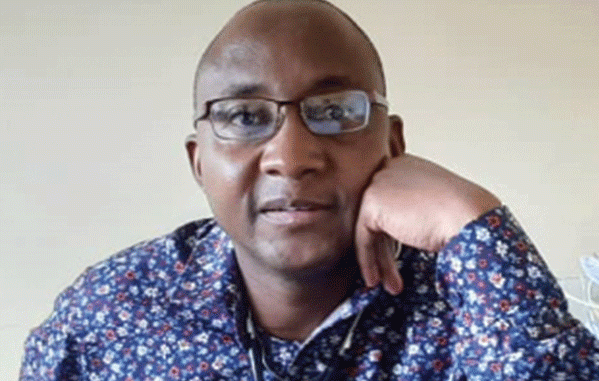
By Johannes Marisa
MEDICAL practitioners have been grumbling for long about medical aid societies (MASes), whom they accuse of iniquity. The same has happened with MASes that blame practitioners for improper conduct when dealing with their clients who happen to be the patients. The acrimony has gone on for a long time with no solution in sight.
The consequences are very clear: the patients are the victims when the two protagonists cross swords. Many meetings have been held in a bid to find lasting solutions, but nothing concrete has come out of them to date. This may be because the parties are not negotiating in good faith.
The MASes are regulated under the Medical Services Act (Chapter 15:13) that deals with the registration and cancellation of registration of MASes. Medical practitioners have their respective councils that register them, while the Health Professions Authority of Zimbabwe (HPAZ) is the supreme authority that plays an oversight role on all medical institutions.
HPAZ also protects public interest. It is, therefore, illegal to operate any medical institution without a licence in Zimbabwe.
Different practitioners deal with MASes and among them are medical doctors, dentists, scientists, physiotherapists, occupational therapists, pharmacists, nurses and medical psychologists.
The tiff between service providers and MASes has been lingering for years and it is unpalatable. This has worked much to the detriment of a smooth flow of health service delivery, with patients bearing the brunt of the stand-off.
Patients think the medical practitioners are always to blame for lethargic service, yet the health funders play a huge part in slowing down health service delivery. Service providers have come out guns blazing against MASes, some of which they accused of the following:
- Chamisa under fire over US$120K donation
- Mavhunga puts DeMbare into Chibuku quarterfinals
- Pension funds bet on Cabora Bassa oilfields
- Councils defy govt fire tender directive
Keep Reading
- Late or non-payment of claims that are sent to them — For sure, there are many MASes that have become bullies in the medical industry by arrogantly refusing to honour some claim forms citing flimsy reasons. That has angered medical practitioners who feel hard done after sweating for long hours in a bid to deliver the best healthcare to patients.
In the end, doctors demand cash upfront from patients in subsequent visits. Many MASes have gone on to open clinics and hospitals, while failing to honour claims from service providers.
This is unfair and is a display of lack of compassion at its worst.
Many service providers are wallowing in abject poverty while MAS executives are driving expensive cars.
- Dictation to service providers — Many practitioners, especially general practitioners, get infuriated when MASes refuse to honour some medical investigation bills such as those for Computed Tomography Scans. I wonder if these MASes think the doctors are not qualified enough to determine if a patient needs such a scan or not. Such kind of thinking, that belittles our well-trained practitioners, will not help to alleviate the acrimony but will add insult to an injury.
- Unilateralism on tariff gazetting — MASes have often been accused of unilaterally coming up with tariffs that suit them. In 2015, the Zimbabwe Medical Association agreed with MASes on particular tariffs, like those for consultation and subsequent visits. Unfortunately, the agreed tariffs were not implemented by MASes and the tension persisted.
There is no negotiation that yields fair results when one party acts as a superpower. Service providers have often responded by flexing their muscles in order to remain afloat, especially during this COVID-19 era, where the costs of running clinics, surgeries or hospitals are spiralling.
- Diverting patients to preferred practitioners — Many service providers have complained about some MASes that unethically divert patients to their preferred practitioners. Some threaten their clients that they will not honour claims from practitioners they did not recommend, a situation which is not only barbaric but also unethical.
MASes have also cried foul about some service providers who indulge in unethical medical practice that brings about economic prejudice. Some of these complaints emanate from the following:
- Fraudulent claims — There are cases of false claims that are purportedly sent to MASes yet the patients were never seen at the medical centres concerned, a situation which no one condones. That practice should stop if doctors were doing it.
- Overcharging patients — The issue of overcharging has been raised several times, but gained prominence during the COVID-19 era. While those not on the ground might not realise how expensive COVID-19 management is, the practitioners will argue that the cost of sundries and medicines is contributing to the so-called high charges.
Oxygen cost for desaturating patients is unbearable considering that some patients may require at least six oxygen cylinders in one day. COVID-19 has brought misery and anguish.
Service providers cannot remain viable rendering services to COVID-19 patients when some MASes take two months to pay yet money is needed to stock drugs, sanitisers, personal protective equipment, pay salaries including risk allowances.
The tiff can be solved by approaching negotiations in a respectful manner. Congruency and fairness are cardinal in finding common ground. Service providers will not tolerate bullish behaviour from MASes.
- Johannes Marisa is the president of the Medical and Dental Private Practitioners Association of Zimbabwe. He writes here in his personal capacity.











